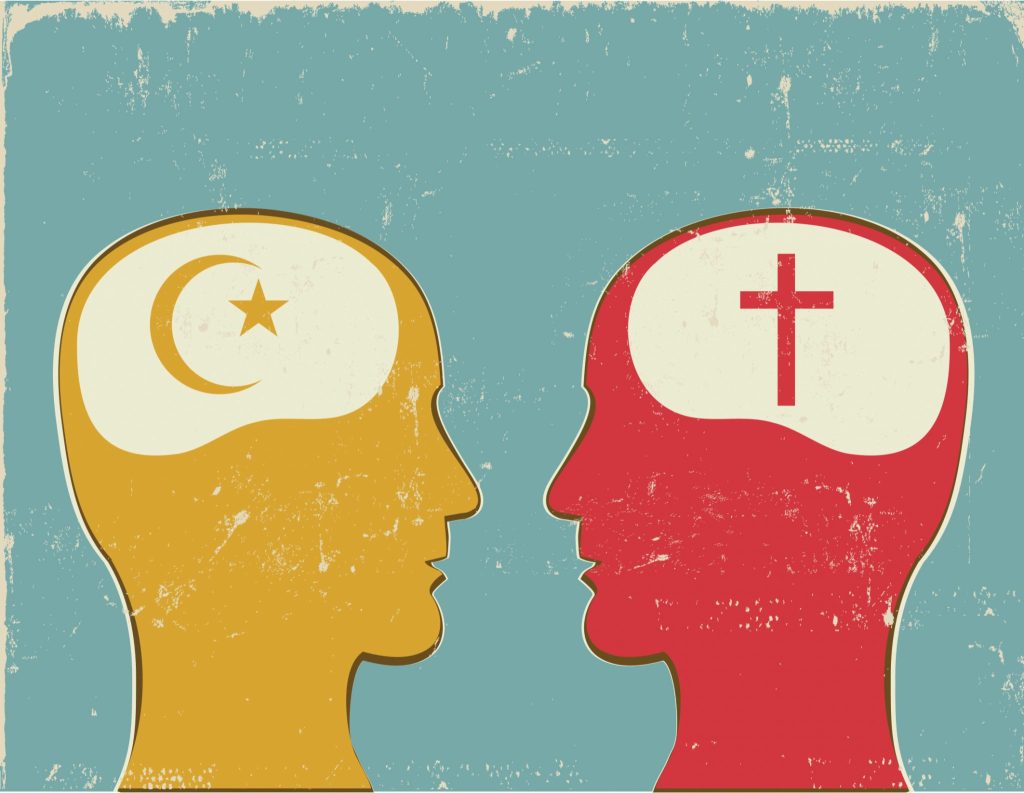
Shias’ Contribution to Interfaith Dialogue in USA

Increasingly, after the events of 9/11, Americans have become aware that Islam in America is not a monolithic entity and that there are many dividing lines within the Muslim community. They know that Muslims hold a variety of opinions on a great number of issues, and they want to hear a wider range of Muslim voices.
In several cities, it is the Christians and Sunnis who set the agenda for dialogue in which Shias are sometimes invited to participate. Shias’ representation at dialogue sessions tend to be minimal, often with only one participant alongside a number of Sunnis. In most cases, Sunnis and Shias share the same beliefs and practices which makes the Shias’ contribution to interfaith dialogue in USA easier. However, instances have arisen where Shi‘is feel that the topics chosen for discussion do not reflect their distinctive beliefs or practices.
For example when Sunnis and Shias have a dialogue together with Christians, they soon realize that their conception of post-Muhammadan authority differs quite radically. Sunnis believe that after his death, the charismatic authority of the Prophet was routinized among his companions. Shias, however, believe that the comprehensive Prophetic authority was transmitted to his family.
Due to these differences, Shias in cities such as Washington, Los Angeles, and Dearborn have formed their own dialogue groups with Christians. Shias have increasingly felt the need for self-representation rather than being represented by the Sunni majority. Especially after the American invasion and occupation of Iraq and the concomitant awareness of Shi‘ism, Shi‘is hope to counter the negative images most Christians may have about Islam by engaging in dialogue with their non-Muslim counterparts.
Many Shia centers around America organize annual events which provide the chance of Shias’ Contribution to Interfaith Dialogue in USA to discuss topics affecting other faith groups in America. The substance of dialogue has changed since 9/11. Especially after the American invasion of Iraq, Americans have gone beyond asking basic questions about Islam. The themes covered now are as diverse as they are fascinating. Topics include issues like authority and scripture, mysticism, the law, challenges in the American milieu, holy days, and fundamentalism in the three monotheistic religions. Other topics may include the sources of authority, terrorism in the scriptures, the Sunni–Shia divide, justice, faith, and the treatment of Muslims in the media. Americans also want to know more about the relationship between Black and immigrant Muslims, Muslim perspectives on issues like abortion, gay marriages, aging, and euthanasia, which have now become part of the conversations that Muslims and non-Muslims engage in. In fact, it is possible to detect an evolution in dialogue from basic issues (terrorism, women’s rights) to more sensitive and controversial topics.
Shias dialogue have introduced distinctly Shia themes and figures in their conversation. They have introduced their heroes. Figures like Imam ‘Ali, Fatima, and their daughter Zaynab have featured more in conversations. Shias have also accentuated their chiliastic vision of a just social order upon the appearance of the twelfth Imam, the Mahdi. They have also made others aware of what it means to be a Shia Muslim in America, and that the demonization of Islam, increasing surveillance of Muslims, and restriction of civil liberties have been extremely painful for all Muslims. They also make it clear that Shias have been drawn into a battle (the war against terror) that they are not a part of.
Taken from Shi‘ism in America by Liyakat Nathani Takim